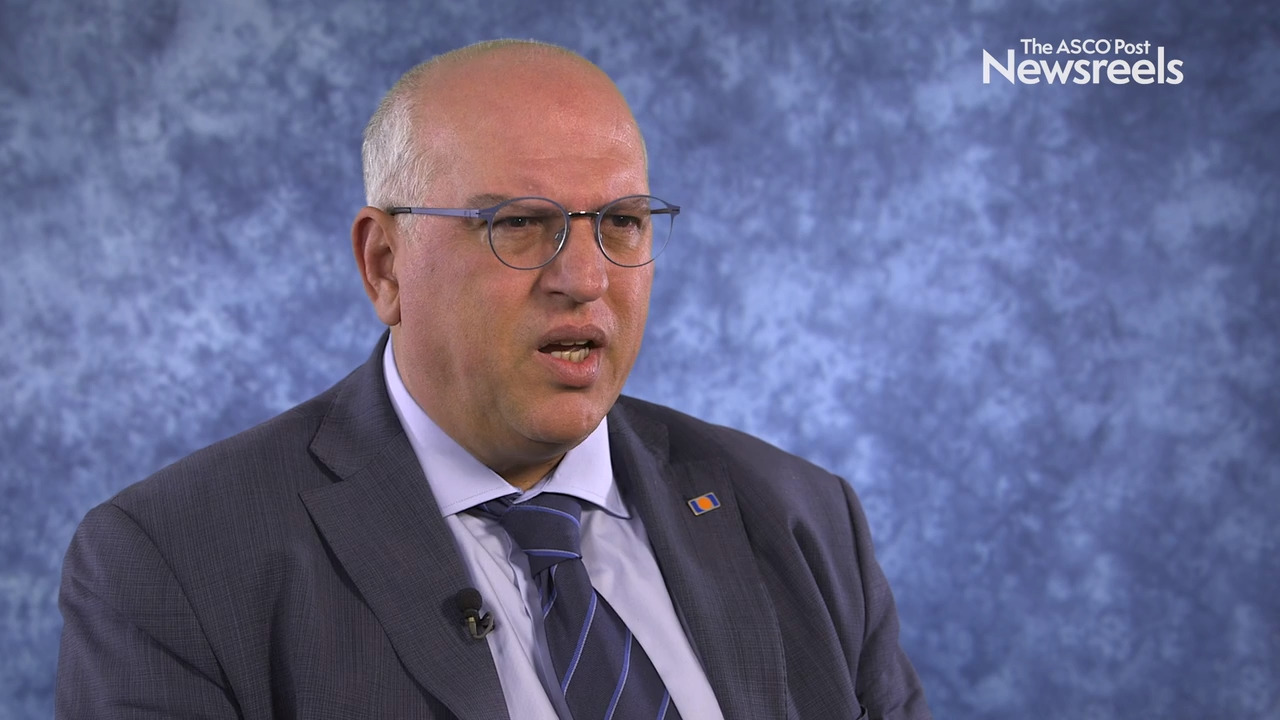Tim Meyer, PhD, and Lorenza Rimassa, MD, on Advanced Hepatocellular Carcinoma: CELESTIAL Trial of Cabozantinib
ESMO 2019 Congress
Tim Meyer, PhD, of the University College London, and Lorenza Rimassa, MD, of Humanitas Research Hospital, Milan, discuss their phase III findings on prognostic and predictive factors of cabozantinib vs placebo in previously treated liver cancer, and outcomes based on clinical characteristics and plasma biomarkers in the advanced setting (Abstracts 749P & 678PD).
Antonio González Martín, MD, PhD, of the Clínica Universidad de Navarra, discusses study findings showing niraparib therapy significantly improved progression-free survival in patients with advanced ovarian cancer across biomarker subgroups (Abstract LBA1).
Georgina V. Long, MD, PhD, of the Melanoma Institute Australia, The University of Sydney, discusses long-term outcomes from a phase II trial which showed that nivolumab/ipilimumab therapy demonstrated durable intracranial responses in patients with melanoma brain metastases. No new adverse events were reported (Abstract 1311O).
Suresh S. Ramalingam, MD, of Emory University, discusses results from the final overall survival analysis of the phase III FLAURA trial in EGFR-mutated advanced non–small cell lung cancer, which showed that osimertinib provided a survival benefit vs comparator EGFR tyrosine kinase inhibitor therapy in the first-line setting (Abstract LBA5).
Nicoletta Colombo, MD, of Istituto Europeo di Oncologia, discusses the efficacy of lenvatinib/pembrolizumab in metastatic endometrial cancer. The combination showed antitumor activity, regardless of tumor microsatellite instability or DNA mismatch repair status (Abstract 994O).
Paolo A. Ascierto, MD, of the Istituto Nazionale Tumori, Napoli, discusses phase III study findings confirming the superior activity of nivolumab vs ipilimumab in resected stage III/IV melanoma in terms of regression-free survival after a minimum follow-up of 36 months (Abstract 1310O).





